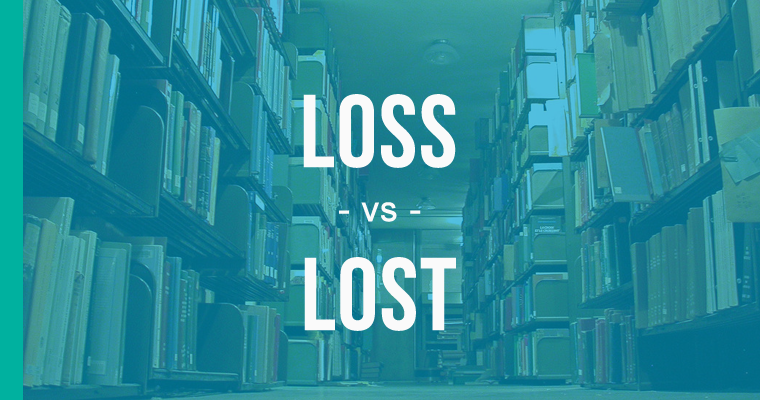Loss vs. Lost – How to Use Each Correctly

What’s the Difference Between Loss and Lost?
Contents
None of us enjoy losing, but we should be acquainted with the terms to describe it. Loss and lost are two such words.
While both of these words have to do with losing, they are different parts of speech that can never be interchanged.
Loss is a noun and refers to the act of losing.
- His departure from the team is a huge loss.
Lost is a verb and is used when someone loses something or loses at something.
- The Lakers lost the game last night.
Since a loss is the opposite of a win and to lose is the opposite of to win, you will naturally find these words used in the context of sports and athletic competitions, as many of our examples on this page have indicated.
Now, let’s go over a few ways you can use these words in your sentences.
Using Loss in a Sentence
When to use loss: Loss is used as a noun to refer to the act of losing.
For example,
- The loss of a few key players means the team will suffer.
- Higher taxes will result in job losses.
A loss might eliminate you from a competition if you are on a sports team.
If you are a business owner and you sell your good at a loss, you are selling them below cost.
Additionally, if you are at a loss, you are puzzled or uncertain of what to say. A common phrase is at a loss for words.
Using Lost in a Sentence
When to use lost: Lost is used as the past tense and past participle of the verb to lose.
For example,
- He missed the game-winning shot, so the team lost.
- After the crowd heckled the comedian, he lost his cool.
Lost is also an irregular verb, which means it doesn’t follow the standard English conjugation rules.
Most verbs are conjugated by adding ed to for the past tense.
For example,
- I play. (Present)
- I played. (Past)
- I will play. (Future)
Lost on the other hand, follows a slightly different conjugation path.
- I lose (Present)
- I lost (Past)
- I will lose (Future)
Lost as an adjective. Unlike loss, which can only function as a noun, lost can function as a verb and an adjective.
As an adjective, lost means unable to find one’s way.
For example,
- The lost child could not find his parents.
Remembering Loss vs. Lost
Now, what is an easy way to remember the difference between lost vs. loss?
Loss is a noun that ends in a double “ss,” similar to other nouns like moss and boss.
If you can mentally link the noun loss with other rhyming nouns like moss and boss, you won’t ever confuse the two again.
Outside Examples
- Pier 1 Imports Inc. (PIR) on Wednesday reported a loss of $3 million in its fiscal first quarter. –CNBC
- The coupling can separate from the drive shaft, causing loss of power or unintended movement when shifted into park. – Louis-Post Dispatch
- The Transportation Security Administration paid passengers $3 million over the last five years for claims that airport security screeners broke, lost or stole their luggage or items inside, according to a review of about 50,000 complaints. –Tallahassee Democrat
- The U.S. Park Police has lost track of a huge supply of handguns, rifles and shotguns, according to a report released Thursday on the law enforcement agency responsible for safeguarding the National Mall and critical American landmarks. –Fox News
Quiz: Loss vs. Lost
Select the correct word.
- Lebron James ______ the NBA finals two years in row.
- After the ______ of his wife, he struggled with depression.
- The couple ______ all of their belongings in the house fire.
- After weeks of searching, the ______ child was found.
- Years of economic decline in urban areas led to population ______.
See answers below.
Article Summary
Should I use loss or lost? Despite being just one letter apart in their spelling, these words have completely different functions within the sentence.
- Loss is a noun.
- Lost is primarily a verb, but it can also function as an adjective.
Answers from Quiz
- Lost.
- Loss.
- Lost.
- Lost.
- Loss.
